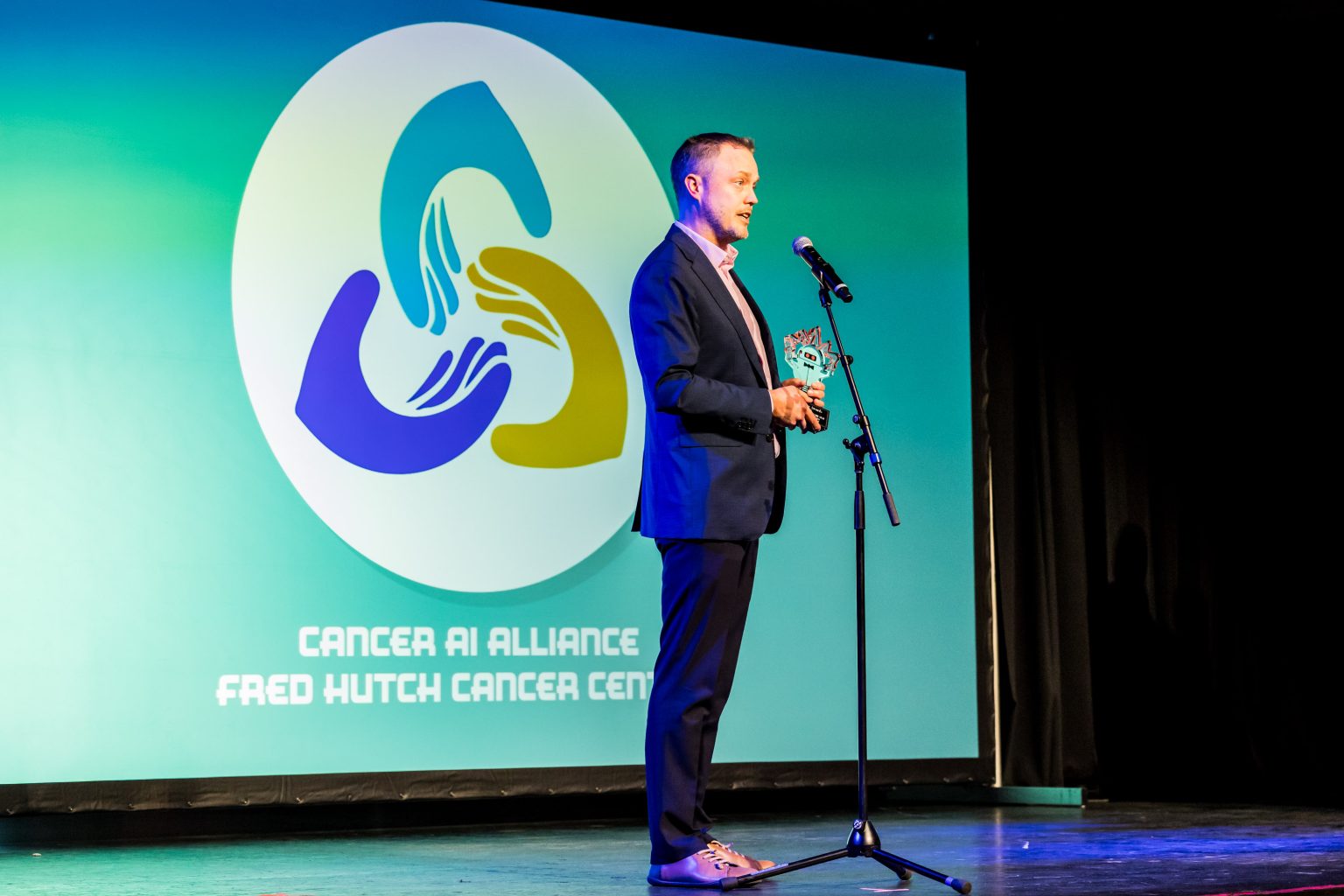Cancer AI Alliance Pioneers Privacy-Preserving Platform for Accelerated Research
In a groundbreaking development for oncology research, the Cancer AI Alliance (CAIA) has successfully built an artificial intelligence platform that could dramatically reduce the timeline for cancer discoveries from years to mere months. Led by Seattle’s Fred Hutchinson Cancer Center, this consortium of leading U.S. cancer institutions has created a revolutionary approach that allows AI models to train on clinical data across multiple cancer centers while maintaining strict patient privacy protections. The alliance, which celebrated its first anniversary this month, includes prestigious institutions like Dana-Farber Cancer Institute, Memorial Sloan Kettering Cancer Center, and Johns Hopkins University, with technical and financial support from technology giants including Amazon, Microsoft, Google, NVIDIA, and Seattle’s Allen Institute for AI (Ai2). The collaborative platform represents a significant leap forward in how researchers can analyze cancer data, potentially accelerating treatments and improving outcomes for patients worldwide.
The heart of the alliance’s innovation lies in its federated learning platform, which solves one of the most persistent challenges in medical AI research: accessing diverse, large-scale patient data without compromising privacy. Rather than centralizing sensitive patient records, the system trains AI models locally at each participating institution, with only the summarized learnings being shared and combined. This approach keeps patient data secure within each center’s firewalls while still allowing for powerful collective analysis across institutions. “Literally, 10 minutes back, we were able to get to a result that nobody has seen ever before… because nobody has been able to run that analysis across four cancer centers’ data,” explained Bodhisattwa Prasad Majumder, an Ai2 research scientist. This federated approach not only addresses critical privacy concerns but also enables researchers to identify patterns across much larger and more diverse patient populations than any single institution could access independently, potentially leading to more robust and generalizable findings.
What makes the platform particularly revolutionary is its accessibility to cancer researchers regardless of their technical background. The Allen Institute for AI has adapted its new Asta DataVoyager system specifically for the alliance, creating an AI agent that allows scientists to interact with the data using natural language questions. This means that clinicians and researchers without coding expertise can explore complex datasets and generate meaningful insights independently. The system responds with clear answers supported by reproducible code and visualizations, democratizing access to powerful AI-driven analysis. This user-friendly approach removes traditional barriers between medical expertise and advanced computational methods, potentially expanding the pool of researchers who can contribute to cancer breakthroughs and accelerating the pace of discovery across the field.
In just one year since its announcement, the alliance has achieved what many considered impossible: building a functional, secure platform that enables collaborative AI research across independent institutions with different technical infrastructures and privacy requirements. “It cannot be overstated how momentous it is that we came together to launch this platform in just one year, and we did it as a unified alliance with a shared mission to eradicate cancer,” said Brian M. Bot of Fred Hutch, who directs the CAIA strategic coordinating center. This rapid development demonstrates not only technical innovation but also a new model of collaboration in medical research, where competitive institutions unite around a common purpose. The platform’s successful deployment challenges traditional notions about the pace of progress in healthcare technology and suggests new possibilities for multi-institutional research across other disease areas.
Already, researchers at the participating centers have initiated eight projects using the platform, focusing on critical areas such as predicting treatment response, identifying biomarkers, and studying rare cancer trends across larger patient populations. These initial projects represent just the beginning of the platform’s potential impact. Cancer research has long been hampered by fragmented data and small sample sizes, particularly for rare cancers or underrepresented patient groups. By enabling analysis across institutions, the alliance’s platform could lead to breakthroughs for patients who have historically been underserved by research. The ability to quickly analyze data from diverse populations may also help address health disparities and develop more personalized treatment approaches for patients from various backgrounds, ages, and genetic profiles.
Looking ahead, the Cancer AI Alliance plans to significantly expand its reach and capabilities over the next year. This includes bringing additional cancer centers into the consortium and enabling dozens more research models beyond the initial projects. As the platform scales, its potential impact on cancer research will likely grow exponentially, potentially transforming how discoveries are made and accelerating the path from research to clinical application. While challenges remain in standardizing data across institutions and ensuring equitable access to the resulting insights, the alliance’s first-year achievements suggest a promising new direction for collaborative cancer research. By combining the computational power of AI with the clinical expertise of leading cancer centers, all while prioritizing patient privacy, the Cancer AI Alliance has created a model that could fundamentally change how we approach some of medicine’s most difficult challenges. As more results emerge from this innovative platform, patients worldwide stand to benefit from faster discoveries and more personalized cancer treatments.


